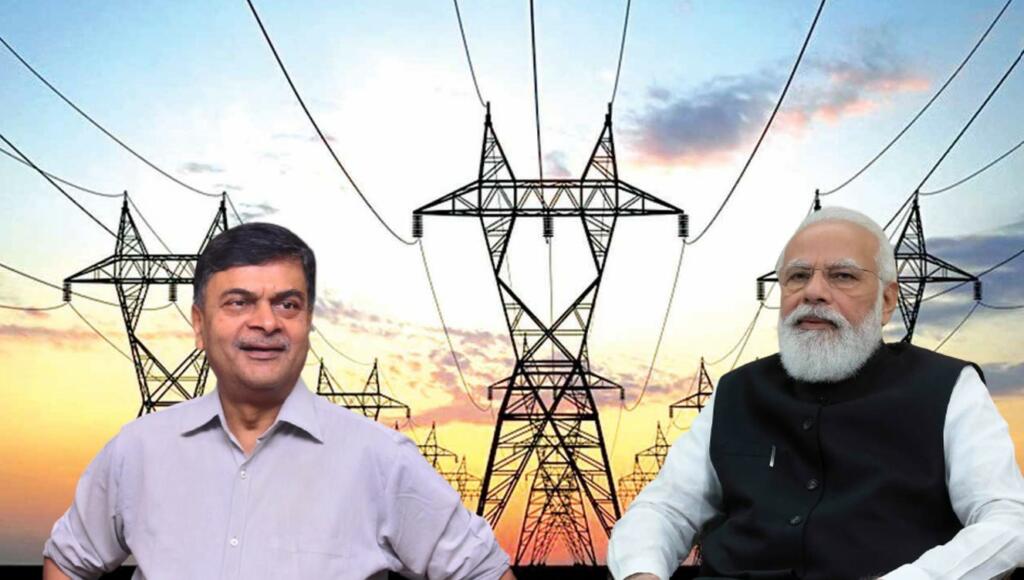- The Modi government is set to implement, Electricity (Amendment) Bill 2021, under which the government plans to introduce major reforms in the power sector
- The Electricity (Amendment) Bill has introduced many changes which will prepare the country’s power sector for the 21st century.
- While India does excellent in power generation and per unit generation cost in the country is one of the lowest in the world, the performance in distribution is dismal – thanks to the monopoly of state government-owned distribution companies.
- Privatizing the power distribution sector would enable the private players to enter the business and bring down the distribution cost and result in the power sector getting more efficient.
Electricity Amendment Bill 2021, under which the government plans to introduce major reforms in the electricity sector, is set to be implemented by the Modi government. The proposed reforms are the magnitude of what three farm bills were to the Agricultural sector. Thus, the opposition parties like Congress, TMC, which opposed every move of the government irrespective of its merits, have already started calling it “anti-people”.
The Electricity (Amendment) Bill has introduced many changes which will prepare the country’s power sector for the 21st century. From renewable purchase obligation to the regulation of cross-subsidy ( a major issue behind the lack of profitability of Discoms), the Government subsidy to ensure universal power access to Sub-contracting of power distribution activities, the amendment bill introduces many path-breaking reforms and tries to solve perennial problems in the sector.
While India does excellent in power generation and per unit generation cost in the country is one of the lowest in the world, the performance in distribution is dismal – thanks to the monopoly of state government-owned distribution companies. On one hand, India generates surplus electricity with solar, coal, and other resources at a rate that would put highly efficient players across the world to shame, while on other, aggregate, technical and commercial (AT&C) loss is around 21.7 %- a shameful figure. So, more than one-fifth of the value is destroyed in AT&C losses during distribution and this figure is rising.
According to a World Bank report, the efficiency gap in the power sector costs the Indian economy about 4 per cent of GDP a year, equivalent to $86 billion in the fiscal year 2016.
The losses of discoms stood at Rs 33,894 crore in FY17, Rs 29,452 crore in FY18, and jumped to Rs 49,623 crore in FY19, according to the data provided in Lok Sabha. The finances of the discoms would have been worse in FY21, had the Centre not announced the Rs 1.25-lakh-crore loan package to clear the dues of power generators.
Privatizing the power distribution sector would enable the private players to enter the business and bring down the distribution cost. This might result in the power sector getting more efficient, because of which, the general public and the businesses across the country can have 24×7 uninterrupted power supply.
Power is generated in the country at as low as 2-3 rupees per unit while the distribution companies sell it at between 7-12 rupees per unit (rates are different for households depending on the area and even higher prices for corporate companies), and still incur huge losses.
The government has also floated the idea of portability which would enable the consumers to port the service provider without changing connection, just like one does in the case of the Telecom sector. The portability is a noble idea, and it can break the monopoly for the public as well as private players. But the country needs more private players, and for that, the government is bringing the Electricity Amendment Bill.
The power sector is dominated by publicly owned transmission companies. The government needs to ensure that players like Adani, Tata, who are currently limited to Gujarat and Western Maharashtra, expand to states around the country. Only when there are enough private players available, there will be more competition to get the customers and the sector will overcome the inefficiency with which it operates now.
The scheme was proposed for the first time during the Union budget presentation in February, by the finance minister. Later, the power minister gave a detailed briefing over the matter to the media and explained how power distribution company portability is going to be as easy as mobile number portability.
“People do not have any option if the power distribution company is performing badly or there is too much load-shedding. There is no system of solving their complaint. We are bringing a system in which more than one company will operate in each area and whoever provides better service, people can opt for that,” said Power Minister R K Singh when the idea was floated during the budget presentation.
“It’s the same as for mobile services. When a mobile operator does not perform well, people have the option of switching to another service provider,” he explained.
The Union lobbies have already given a call for protest because the proposed amendment would break their monopoly over power distribution and force them to become more efficient. Also, this would minimize the chances of rampant corruption that is prevalent in the sector.
The government must push against the unions and implement the power sector reforms as soon as possible. India still has one of the lowest electricity consumptions per capita, and since power consumption is directly proportional to GDP growth, the government is trying to reform the sector. The Electricity (Amendment) Bill, 2021 seeks to bring many path-breaking reforms in the sector that would incentivize the growth of the sector.
